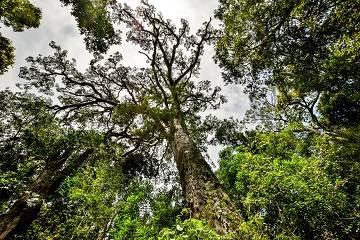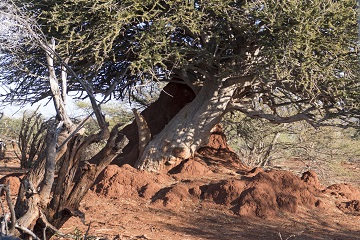Conserve our nations green heritage in Arbor Month
September is Arbor Month and time to plant, nurture and celebrate trees. Arbor Month is a national campaign to celebrate South Africa’s trees and to raise awareness about their importance and need for the conservation of indigenous trees that are threatened by extinction.

Protecting our green heritage
An important way to protect our green heritage is to continue planting indigenous trees, especially rare ones. In the fight to secure and sustain our green heritage the National Department of Agriculture, Fisheries and Forestry are asking citizens to:
- protect indigenous trees,
- help prevent veld fires,
- plant green to mitigate against climate change,
- use conserving methods when planting,
- integrate fruit trees in your garden, and
- most of all to plant indigenous trees that save water.
Every year the National Department of Agriculture, Fisheries and Forestry selects 2 indigenous trees (1 common and 1 rare) as the trees of the year.
The trees of the year for 2018 are:
- Genus Podocarpus - Common name: Yellowwoods (common species)
- Boscia albitrunca - Common name: Shepherd's tree (rare species)

The Yellowwood is endemic to Southern Africa and there are four yellowwood species in South Africa, all of which may be grown in the garden.
Podocarpus elongatus - Common name: Breede River Yellowwood,
Podocarpus henkelii - Common name: Henkel's Yellowwood,
Podocarpus falcatus - Common name: Outeniqua yellowwood, and the
Podocarpus latifolius - Common name: real yellowwood.
The Sheperd’s Tree is widespread in Southern Africa. It prefers dry, open woodland and bushveld areas. Gardeners find this a worthwhile tree to plant, as it is hardy and drought-resistant. It is easily propagated and grows from shoot and root cuttings.
Both species of trees require little maintenance and fare well in drought prone areas.
Beautifying for a sustainable environment
Beautifying projects took place all over the Cape under the theme “Urban Forests and Sustainable Cities”. One of which was in Khayelitsha where City of Cape Town Mayco member for safety and security, and social services JP Smith was quoted saying that the days of large-scale planting were over, that it was a case of planting smartly and taking better care or our existing trees.
“We have had to revisit our approach to Arbor Month, specifically because of the drought and the realisation that we live in a water-scarce region,” said Smith.
We in the Western Cape are urged to preserve this precious resource and understand what they do.
Help protect our indigenous forests
To help protect this national heritage never cut down a tree in a natural forest and never remove an animal or plant from their habitat without permission.
Nurturing in drought conditions
With the current drought restrictions in the Western Cape planting exotic gardens have become more and more challenging to maintain. People are being encouraged to plant indigenous. They tolerate drought well and require little maintenance.
Trees do more than just provide products and ornamental beauty:
- They provide food (in terms of fruits and nuts).
- Trees combat noise pollution.
- They can conserve energy.
- They prevent soil erosion and reduce run off.
- Trees absorbe carbon dioxide that would otherwise be released into the atmosphere and contribute to climate change.
- Trees provide shade in summer and shelter from the elements during winter.
- Trees provide aesthetic appeal and add an estimated 5 – 15% value to any suburb or property.
Remember to plant indigenous and care for your tree appropriately.


